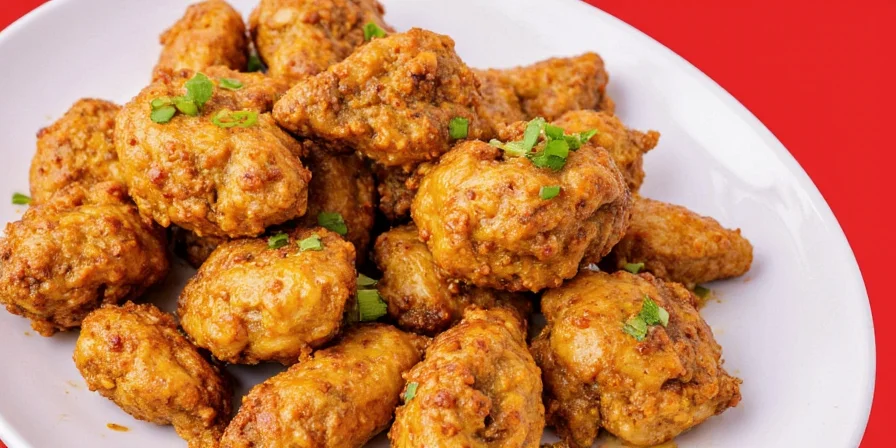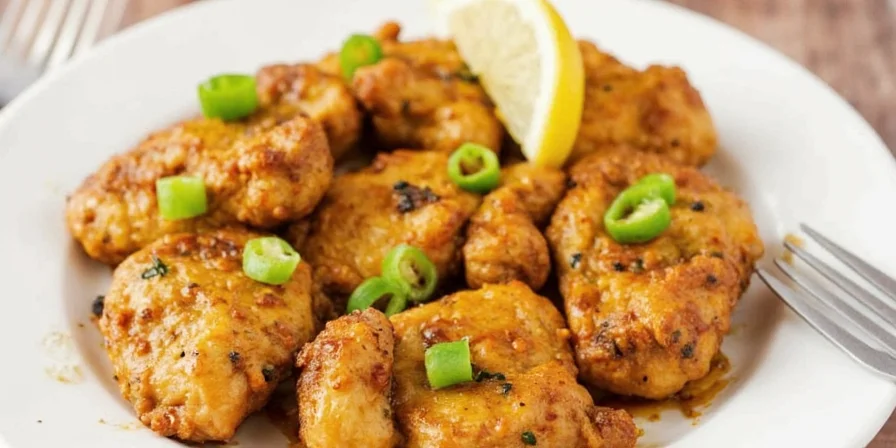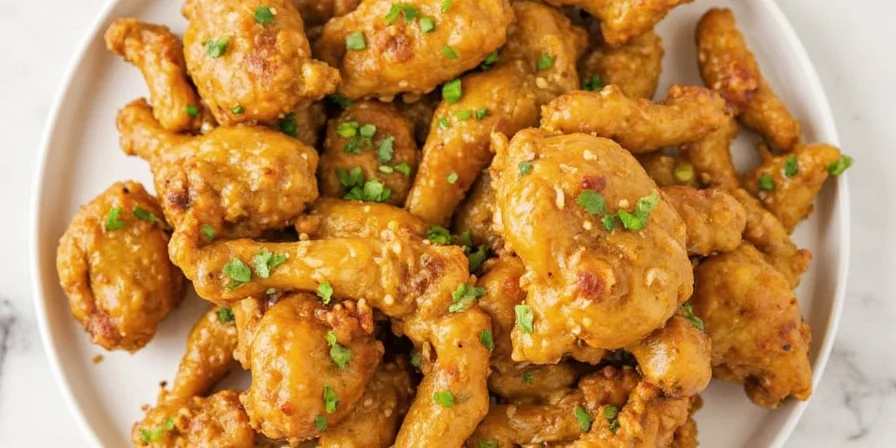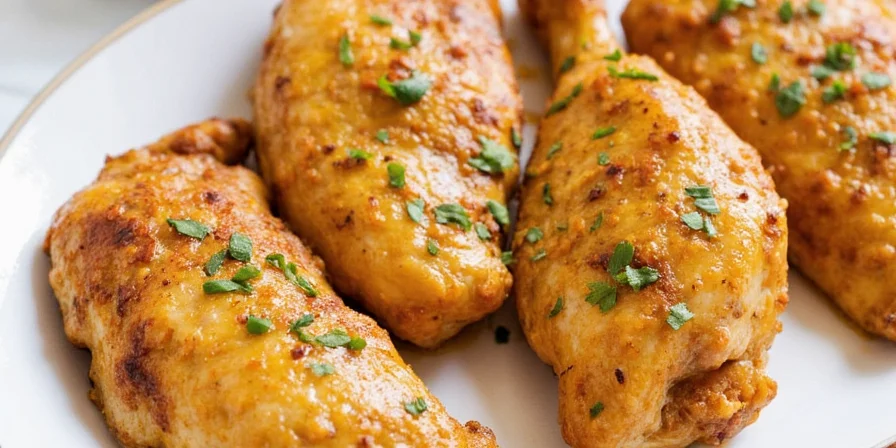Spice Up Your Grub: 5 Must-Try Mustard Marinade Chicken Pairings That’ll Blow Your Mind!
If you thought mustard was just that yellow condiment you squirt on hot dogs, it’s time to rethink your spice game. In this blog post, we’re diving deep into the world of mustard marinade chicken and exploring some seriously innovative spice pairings that will elevate your grilled bird from ‘meh’ to ‘marvelous.’ Whether you're a seasoned chef or a weekend warrior with a Weber grill, there's something here for everyone — and yes, even your picky-eater cousin Steve might approve.
Table of Contents
- What is a Mustard Marinade Anyway?
- Why Use Mustard as a Marinade Base?
- Top 5 Mustard Marinade Chicken Spice Pairings
- Pro Tips for Perfect Mustard-Marinated Chicken
- Serving Ideas & Flavor Combinations
- The Science Behind Mustard + Spices
- FAQs: All You Ever Wanted to Know About Mustard Marinades
What is a Mustard Marinade Anyway?
A mustard marinade is simply a liquid mixture where mustard is the primary base ingredient used to flavor and tenderize meats like chicken. It works by breaking down proteins (thanks to its acidity) while also infusing the meat with bold flavors. Think of it as a spa day for your chicken — but instead of cucumber water and aromatherapy, it gets paprika, garlic, and honey massages.
Why Use Mustard as a Marinade Base?
You might be wondering, “Why not olive oil? Or soy sauce?” Well, let’s take a quick science break:
- Acidity: Mustard has a mild acidic profile, helping break down muscle fibers without turning your chicken into mush.
- Binding Power: Because of its thicker consistency, mustard clings to meat better than thinner liquids, meaning more flavor per bite.
- Versatility: Yellow, Dijon, whole grain — each brings a different level of heat, tang, and texture to the table.

Top 5 Mustard Marinade Chicken Spice Pairings
We’ve tested dozens of combinations so you don’t have to. Here are our top five innovative spice pairings for mustard marinade chicken that guarantee a flavor explosion in every bite:
| Spice Combination | Flavor Profile | Best For |
|---|---|---|
| Garlic + Smoked Paprika | Earthy, smoky, slightly sweet | Grilled or smoked chicken |
| Honey + Cayenne Pepper | Sweet heat bomb | Glazed chicken wings or drumsticks |
| Lemon Zest + Thyme | Fresh, herby, citrusy | Light dishes or summer salads |
| Cumin + Turmeric | Earthy, warm, exotic | Middle Eastern or Indian-inspired meals |
| Brown Sugar + Worcestershire Sauce | Savory-sweet, umami-rich | Oven-roasted or slow cooker chicken |
Pro Tips for Perfect Mustard-Marinated Chicken
Want your chicken to be the talk of the neighborhood BBQ? Here are our best insider tricks:
- Don’t skip the resting time: Marinate for at least 30 minutes; overnight is ideal.
- Use skinless cuts for deeper penetration: Skin acts as a barrier, so if you really want that flavor inside-out, go skinless.
- Pat dry before cooking: Moisture = no sear. Dry chicken = crispy, golden crust.
- Don’t throw away the marinade: Simmer it after marinating and use it as a baste or sauce during cooking.

Serving Ideas & Flavor Combinations
Once your mustard-marinated masterpiece is off the grill, how should you serve it? Try these creative twists:
- Asian Fusion Bowl: Serve over jasmine rice with pickled veggies and sesame seeds.
- Tex-Mex Tacos: Shred and stuff into corn tortillas with avocado crema and lime.
- French Dip Sandwich: Thinly slice and layer on a baguette with melted provolone and au jus made from the marinade.
- Greek Salad Topper: Cube and add to a salad with feta, olives, cucumber, and oregano vinaigrette.
The Science Behind Mustard + Spices
Ever wondered why mustard and certain spices taste so damn good together? Let’s get nerdy for a second:
- Umami Synergy: Ingredients like turmeric and cumin contain compounds that amplify umami when combined with mustard’s natural pungency.
- The Maillard Reaction: When mustard-coated chicken hits a hot pan or grill, the sugars and amino acids react to create complex, savory flavors.
- Tongue Tinglers: Compounds like allyl isothiocyanate in mustard activate pain receptors in the nose and mouth, making other flavors feel more intense — hence, more delicious!

FAQs: All You Ever Wanted to Know About Mustard Marinades
Can I use any type of mustard?
Absolutely! Each type gives a different kick. Dijon offers sharpness, yellow is milder, and whole grain adds texture.
How long can I marinate chicken?
For best results, aim for 30 minutes to 24 hours. Don’t go beyond that unless you want your chicken to turn into a tangy sponge.
Is mustard marinade suitable for other meats?
Yes! Pork chops, salmon, and even tofu love a good mustard bath.
Can I freeze mustard-marinated chicken?
Yep! Seal it well and freeze for up to 3 months. Thaw in the fridge overnight before cooking.
Conclusion
So there you have it — everything you need to know about creating killer mustard marinade chicken with out-of-the-box spice pairings. Whether you’re grilling, roasting, or air-frying, mustard proves itself as a versatile, flavorful, and underappreciated hero in the kitchen.
Next time you’re staring blankly into the fridge wondering what to cook, grab that bottle of Dijon or yellow mustard and get creative. And remember: the secret to great food isn’t always complexity — sometimes it’s the simplest ingredients that surprise you the most.
Now go forth and spice boldly.











 浙公网安备
33010002000092号
浙公网安备
33010002000092号 浙B2-20120091-4
浙B2-20120091-4